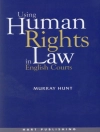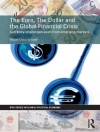The division of life into animal and human is one of the fundamental schisms found within political societies. Ironically, given the immense influence of the animal/human divide, especially upon power dynamics, the discipline in charge of theorizing and studying power—political science and theory—has had little to say about the animal/human. This book seeks to amend this vast oversight. Acknowledging the complexity of the changing differences between animals and humans, the contributors explore such topics as Marx, Freud, the animal, and civilization; dog breeding, racism, and democracy; the meaningful silences of animals; how sovereignty reconfigures the animal/human; and the paradoxical struggles against being dehumanized among immigrant workers in a slaughterhouse.
Political Theory and the Animal/Human Relationship is necessary reading for anyone who wants to understand how power has been influenced by the animal/human divide, and what we can do about it.
İçerik tablosu
Introduction: The Importance of the Animal/Human Question for Political Theory
Judith Grant and
Vincent G. Jungkunz
Part I. Toward Posthumanism
1. Marx and the Human/Animal Dialectic
Bradley J. Macdonald
2. Darwin and Freud’s Posthumanist Political Theory
Judith Grant
Part II. Ironies of Civilization, Sovereignty, and Democracy
3. Domesticating Bodies: Race, Species, Sex, And Citizenship
Claire Rasmussen
4. Sovereignty and the Wolves of Isle Royale
Rafi Youatt
5. Agamben in the Slaughterhouse: On Humanimal Politics, Immigrant Workers, and the State of Exception
Paul Apostolidis
Part III. Meaningful Speech, Silenced Voices
6. Foucault’s Dog
Katherine E. Young
7. The Silence of the Lambs
Vincent G. Jungkunz
Bibliography
Contributors
Index
Yazar hakkında
Judith Grant is Professor of Political Science at Ohio University and the author of
Fundamental Feminism: Contesting the Core Concepts of Feminist Theory.
Vincent G. Jungkunz is Associate Professor of Political Science at Ohio University.












